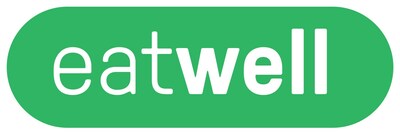WellCare of North Carolina and Reinvestment Partners Join to Improve the Health of North Carolinians
- None.
- None.
Insights
The partnership between WellCare of North Carolina and Reinvestment Partners to provide financial assistance for Medicaid members to purchase fruits and vegetables represents a strategic investment in preventive health measures. From an economic standpoint, this initiative could potentially reduce healthcare costs in the long term by mitigating the risks and severity of chronic conditions that are often exacerbated by poor nutrition.
By allocating an $80 monthly credit for the purchase of healthy foods, the program directly addresses food insecurity and the social determinants of health, which play a significant role in health disparities. The economic implications are multi-fold: it could lead to a decrease in medical expenses for both individuals and the healthcare system and potentially lower insurance premiums if the program proves effective in improving health outcomes.
The anticipated $700,000 expenditure on fruits and vegetables could also stimulate local agriculture and retail sectors, creating a positive economic ripple effect. However, the success of such initiatives depends on the proper utilization of the funds by the recipients and the long-term sustainability of the program's funding.
The 'Eat Well Program' is a practical application of the 'Food as Medicine' philosophy, which is gaining traction in public health policy. By providing an $80 monthly credit to Medicaid members, the program not only aims to alleviate immediate food insecurity but also serves as a preventive health measure against diet-related chronic diseases such as diabetes, heart disease and obesity.
Programs like these can lead to improved clinical outcomes for individuals with complex health needs. The focus on fruits and vegetables is consistent with dietary guidelines that emphasize plant-based diets for better health. For public health stakeholders, the key to measuring the program's impact will be monitoring health outcomes and healthcare cost savings over time.
Moreover, the initiative aligns with broader efforts to improve health equity by targeting populations that have historically had limited access to nutritious food options. The success of this program could serve as a model for other states and potentially influence national health policy.
The collaboration between WellCare of North Carolina and Reinvestment Partners is a significant social innovation, with implications for corporate social responsibility (CSR) and the role of private entities in addressing public health issues. By investing in the health of Medicaid members, WellCare is not only contributing to the welfare of individuals but also aligning its business practices with broader societal goals.
This program could serve as a benchmark for other companies looking to enhance their CSR profile and could positively impact WellCare's reputation among consumers and investors. The partnership also reflects a growing trend where private and public sectors converge to tackle complex societal challenges such as health equity and food insecurity.
However, it will be crucial to assess the program's effectiveness in achieving its intended social outcomes and to ensure that the investment translates into tangible benefits for the target population. Long-term commitment and evaluation will be essential to uphold the credibility and integrity of such CSR initiatives.
Eat Well Program to Provide Financial Assistance for over 1,600 Medicaid Members to Purchase Fruits and Vegetables
Eat Well will provide eligible WellCare Medicaid members with a prepaid credit card worth
"Providing individuals with necessary funds to purchase the healthy fruits and vegetables they want allows them to live healthier lives, improves food security and gives them greater agency over their well-being," said Sam Hoeffler, Director of Food Programs at Eat Well. "In total, we anticipate that participants will purchase approximately
Eat Well reflects the state's commitment to addressing food insecurity and providing a healthier well-being for the people of North Carolina. Additionally, the Eat Well Program is part of a "Food as Medicine" approach, which provides access to a healthy, well-balanced diet in an effort to reduce chronic diseases and improve health equity.
"WellCare is pleased to work with Reinvestment Partners to support the dual mission of enhancing the health of North Carolinians," said Frances Johnson, RN, Vice President, Population Health & Quality Improvement for WellCare of
Reinvestment Partners, the organization behind Eat Well, received
About Eat Well
Eat Well is a program of
About WellCare of
Headquartered in
About Reinvestment Partners
Reinvestment Partners (RP) is a non-profit that addresses the problems of poverty and social injustice. RP works in the areas of food, housing, community development, health, and financial services. Reinvestment Partners' mission is to foster healthy and just communities by empowering people, improving places, and influencing policy.
Any reference in this press release to any person, organization, activity, or services related to North Carolina Medicaid does not constitute or imply the endorsement, recommendation, or favoring by the North Carolina Department of Health and Human Services.
![]() View original content to download multimedia:https://www.prnewswire.com/news-releases/wellcare-of-north-carolina-and-reinvestment-partners-join-to-improve-the-health-of-north-carolinians-302060445.html
View original content to download multimedia:https://www.prnewswire.com/news-releases/wellcare-of-north-carolina-and-reinvestment-partners-join-to-improve-the-health-of-north-carolinians-302060445.html
SOURCE WellCare of
FAQ
How many Medicaid members will receive financial assistance through the Eat Well Program?
What is the value of the prepaid credit card provided to eligible WellCare Medicaid members?
How much is the estimated purchase value of fruits and vegetables through the Eat Well Program partnership?
What is the goal of the 'Food as Medicine' approach within the Eat Well Program?







